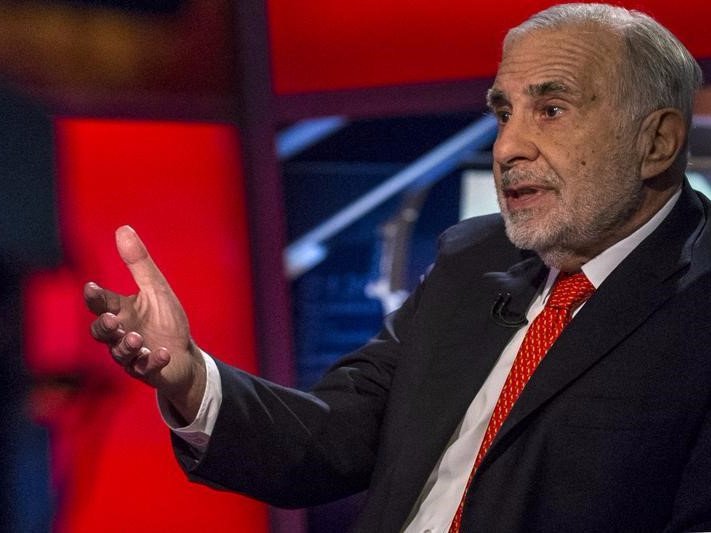 Activist investor Carl Icahn says he’s no longer advising the president.Thomson Reuters
Activist investor Carl Icahn says he’s no longer advising the president.Thomson Reuters
Billionaire investor Carl Icahn is no longer advising President Donald Trump.
Icahn, who had been an unpaid adviser, announced the move on Twitter late Friday afternoon.
“Today, with President Trump’s blessing, I ceased to act as special advisor to the President on issues relating to regulatory reform,” Icahn tweeted.
His announcement follows that of several business titans who have distanced themselves following the president’s comments equivocating white supremacists with counterprotesters in Charlottesville.
Icahn’s reasoning differs from the others, however, and makes no mention of Charlottesville. Icahn couldn’t immediately be reached for comment.
He tied his decision to the July appointment of Neomi Rao as Administrator of the Office of Information and Regulatory Affairs — the helm of Trump’s deregulatory agenda. In a statement posted to Icahn’s business website, he said that he didn’t want “partisan bickering about my role to in any way cloud your administration or Ms. Rao’s important work.
“Contrary to the insinuations of a handful of your Democratic critics, I never had access to nonpublic information or profited from my position, nor do I believe that my role presented conflicts of interest,” he added.
Icahn, a Wall Street investor, had previously drawn criticism when it was announced that he would be advising the president on regulatory issues.
A Reuters investigation earlier this year found that his oil-refining company, CVR Energy, “made a massive bet in 2016 that prices for U.S. government biofuels credits would fall — just before Icahn started advising President Donald Trump on regulations driving that market.”
Senators Elizabeth Warren and Sheldon Whitehouse have also written to Treasury Secretary Steven Mnuchin about Icahn’s role as an adviser given his investment in AIG, the insurance giant.
Rao, meanwhile, as administrator of the Office of Information and Regulatory Affairs, heads one of the most powerful agencies in the government. “The administrator accepts regulations or sends them back to be reworked, a decision that can expedite rules or effectively neutralize them by imposing extensive delays,” The New York Times reported earlier this year in a profile of Rao.
Icahn posted a full statement on his website, which he said was a copy of the letter he had delivered to the president:
Dear Mr. President:
This will confirm our conversation today in which we agreed that I would cease to act as special advisor to the President on issues relating to regulatory reform.
As I discussed with you, I’ve received a number of inquiries over the last month regarding the recent appointment of Neomi Rao as Administrator of the Office of Information and Regulatory Affairs (or “regulatory czar,” as the press has dubbed her) – specifically questions about whether there was any overlap between her formal position and my unofficial role. As I know you are aware, the answer to that question is an unequivocal no, for the simple reason that I had no duties whatsoever.
I never had a formal position with your administration nor a policymaking role. And contrary to the insinuations of a handful of your Democratic critics, I never had access to nonpublic information or profited from my position, nor do I believe that my role presented conflicts of interest. Indeed, out of an abundance of caution, the only issues I ever discussed with you were broad matters of policy affecting the refining industry. I never sought any special benefit for any company with which I have been involved, and have only expressed views that I believed would benefit the refining industry as a whole.
Nevertheless, I chose to end this arrangement (with your blessing) because I did not want partisan bickering about my role to in any way cloud your administration or Ms. Rao’s important work. While I do not know Ms. Rao and played no part in her appointment, I am confident based on what I’ve read of her accomplishments that she is the right person for this important job.
I sincerely regret that because of your extremely busy schedule, as well as my own, I have not had the opportunity to spend nearly as much time as I’d hoped on regulatory issues. I truly appreciate the confidence you have in me and sincerely hope that the limited insights I shared have been helpful to you. I love our country which has allowed me to achieve so much and I thank you for the informal opportunity you have given me to aid it.
Sincerely,
CARL C. ICAHN













